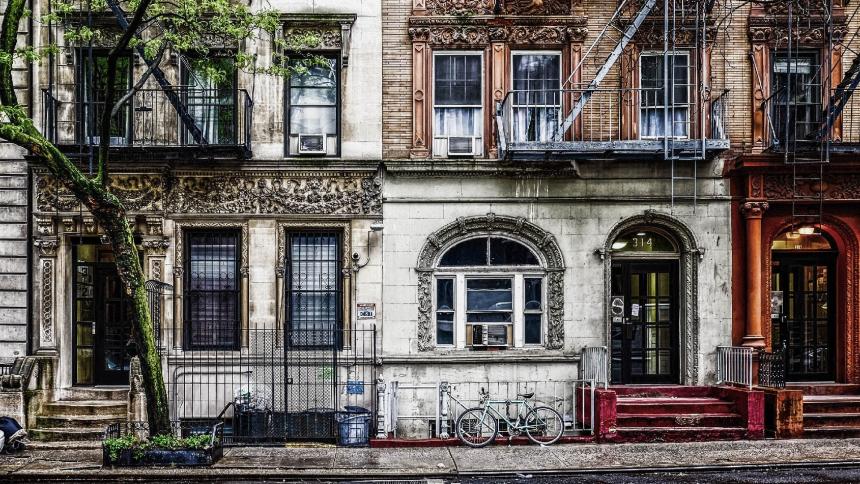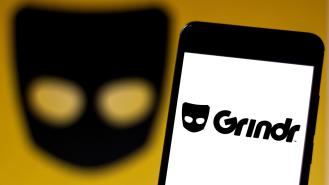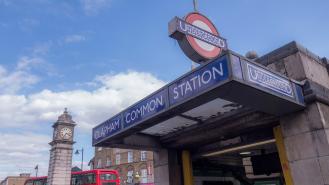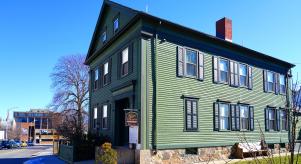
The murderous drug gang targeting LGBTQ+ New Yorkers
In New York’s Hell’s Kitchen neighbourhood, in bars and clubs that should be safe spaces for the LGBTQ+ community, ‘shady outsiders’ have been preying on people with fatal consequences.
Two mysterious deaths
In April 2022, a young gay New Yorker headed out for what should have been a fun night in Hell’s Kitchen. But things went terribly wrong for 25-year-old social worker Julio Ramirez.
After getting separated from his friends at a popular LGBTQ+ venue called the Ritz Bar & Lounge, he was caught on CCTV getting into a taxi with three unknown men. Shortly afterwards, the cab driver approached a police officer to say Ramirez was unconscious in the back seat. The young man was pronounced dead later that night, the victim of ‘a possible drug overdose’.
As his family reeled from the news, the tragedy was compounded by a shocking realisation: that someone was siphoning money from the dead man’s bank accounts through Apple Pay. As his brother later told the press, ‘They had literally taken every dollar that he had, all his savings and all of his money.’
One month later, 33-year-old political consultant John Umberger went out to another LGBTQ+ venue called the Q, located very close to the Ritz. He was found dead several days later in his employer’s Manhattan townhouse, his phone had gone and tens of thousands of dollars were missing from his accounts.
It was initially dismissed as an accidental death. As Umberger’s mother recounted, police told her, ‘it looked like John had gone out to a club, been robbed… and he came home and did a bunch of drugs because he was so depressed over what happened.’
The ‘shady outsiders’
With Umberger’s mother refusing to accept this initial interpretation of events, police began to slowly piece together what was really going on in Hell’s Kitchen. It became clear that a gang – ‘shady outsiders that come into these gay spaces’, in the words of one Hell’s Kitchen resident – was preying on people in the area. They were engaging targets as they left bars and clubs, offering them drugs spiked with a potentially deadly mixture of fentanyl, lidocaine, and other chemicals with the intention of robbing them.
What made the attacks particularly insidious was that they were taking advantage of the carefree, high-trust nature of venues where LGBTQ+ people could let their guard down. As a local resident told the Guardian, ‘Maybe someone’s hitting on you, or you’re hitting on them – it’s not unusual for someone to just offer you a bump.’
Victims began coming forward with their own stories of being drugged and robbed, and of having their stories dismissed by police. One man who spoke to the press on condition of anonymity said officers in the NYPD simply told him to stop going to Hell’s Kitchen gay bars if he was so worried.
State Senator Brad Hoylman-Sigal, who is gay, spoke out about how the police were dragging their heels over the investigation, saying, ‘These lives were discounted because they were gay men who were at nightclubs. And for whatever reason, there seems to be a bias against taking these types of crimes as seriously as if they had happened to someone else.’
Snaring the suspects
The investigation into this spate of ruthless attacks finally bore fruit in April 2023, almost exactly a year after the death of Julio Ramirez. Police arrested and charged a group of men with robbing victims outside bars, with three of the suspects – Jacob Barroso, Robert Demaio and Jayqwan Hamilton – also charged in connection with the drug deaths.
Details of some of the evidence has already been shared with the media, and it is damning. Video footage has been seized which shows Demaio and Hamilton inside the Manhattan townhouse where Umberger was staying. It even shows the victim himself, unconscious and ‘in the same pose as he was later found deceased’.
Another member of the group, Andre Butts, was not charged in connection with the killings themselves but was captured on CCTV buying trainers using Julio Ramirez’s credit card. Speaking of him and the other gang members, NYPD police commissioner Keechant L. Sewell declared that, ‘These defendants showed a callous disregard for human life, and now we are working to hold them accountable.’
Meanwhile, non-profit organisation the Anti-Violence Project, which works to empower LGBTQ+ communities, has stepped up its monitoring of incidents in LGBTQ+ spaces, spreading awareness and handing out fentanyl testing strips so people can check any substances they come into contact with. The organisation has also emphasised the importance of having safety plans and procedures in place when going out, including checking in with friends by text and activating location sharing on phones.
But, with similar crimes taking placing across New York well beyond Hell’s Kitchen, it remains to be seen whether this is a scourge that will only continue to grow, despite the vigilance of those who simply want to enjoy nights in the city.







